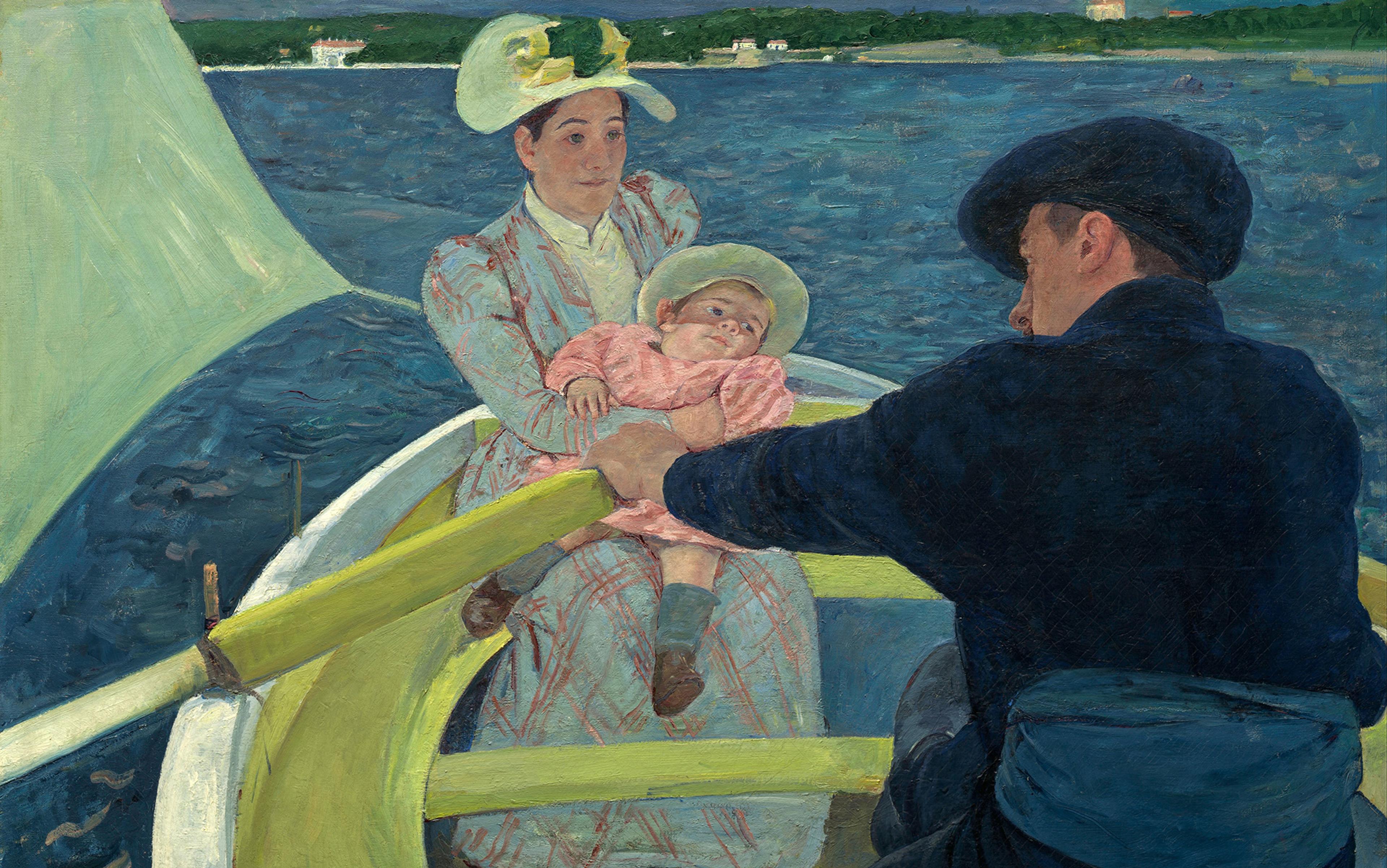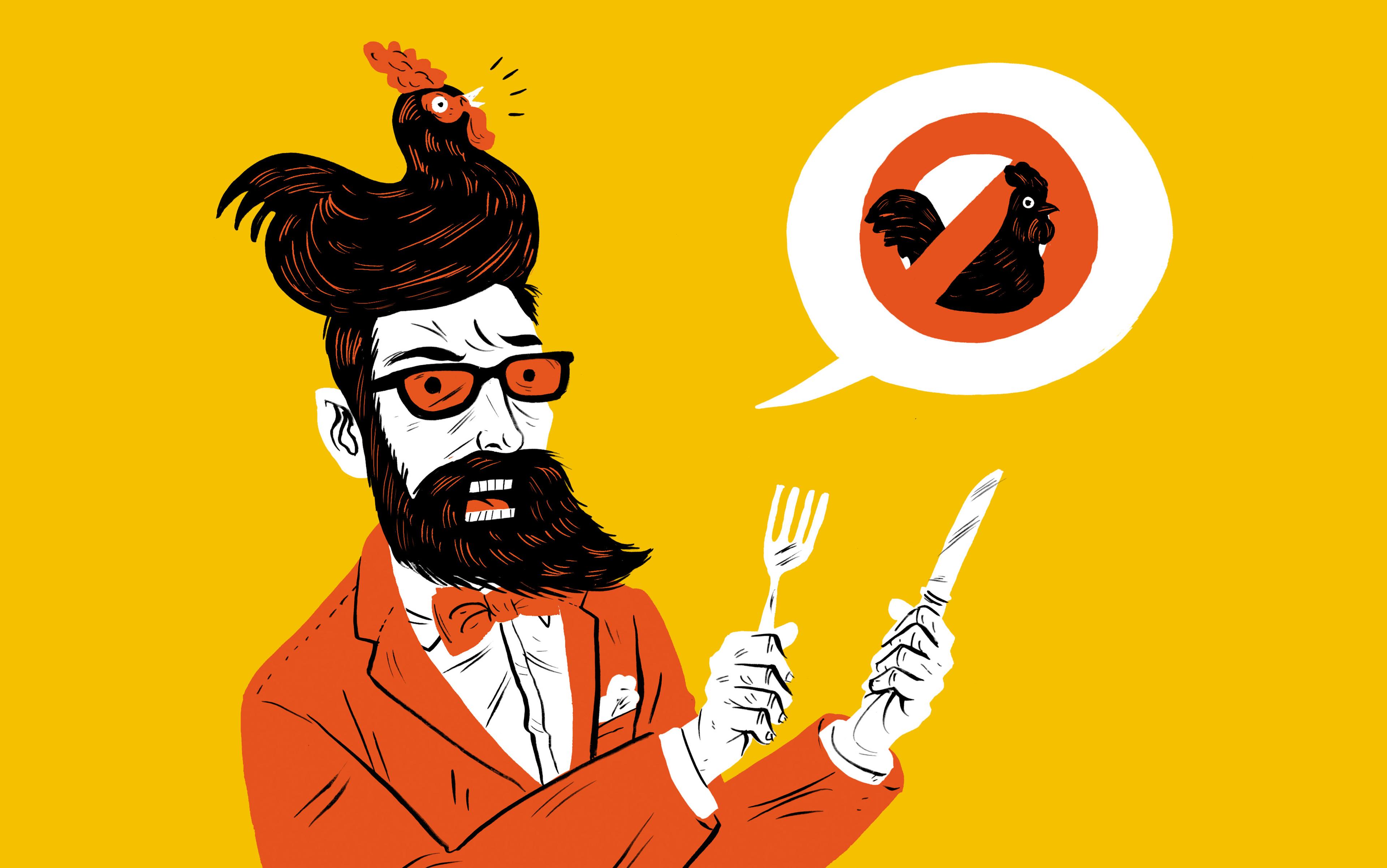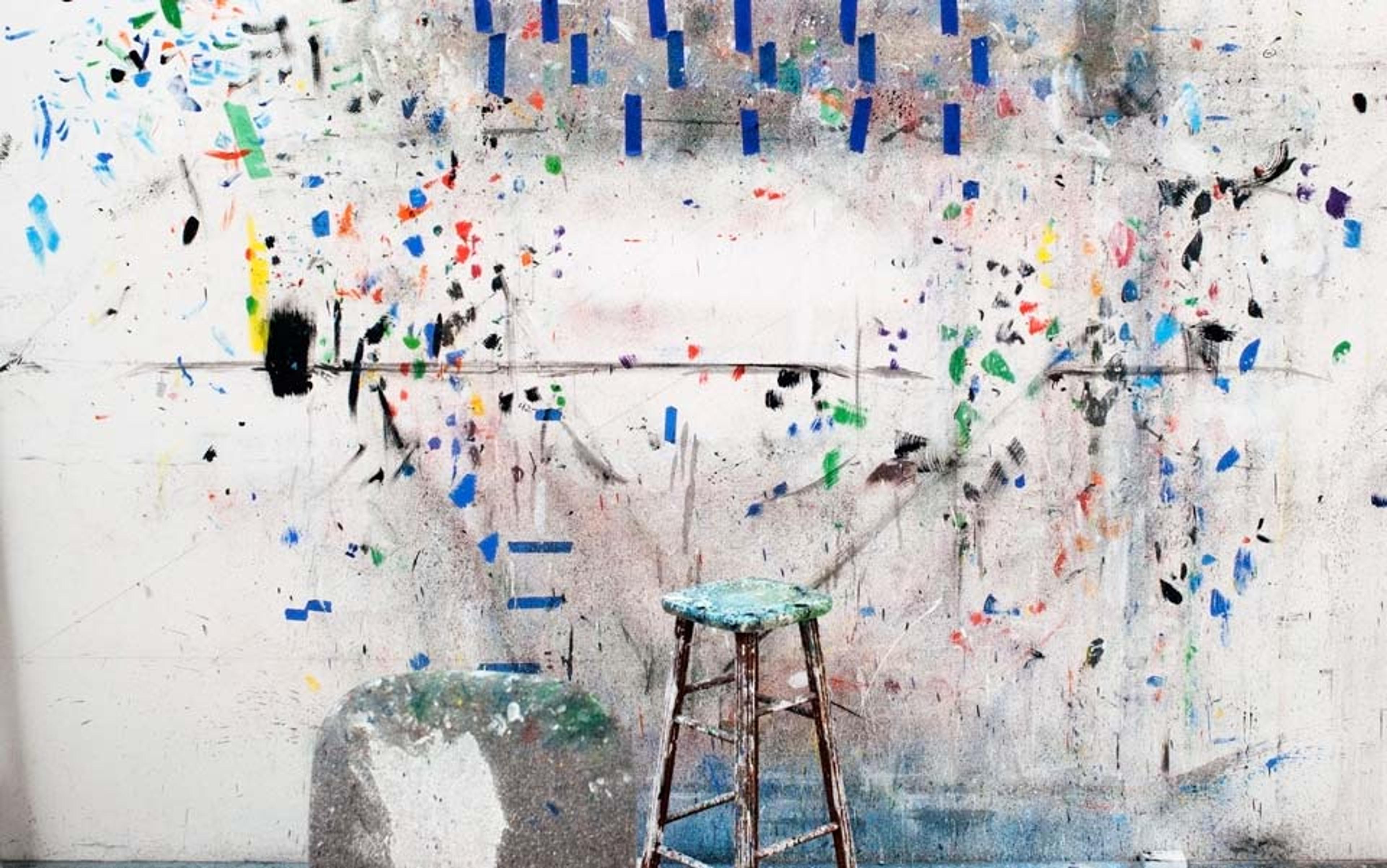With less than a week to finish my screenplay for the last round of a big screenwriting competition, I stepped on a train with two members of a growing activism movement called Effective Altruism. Holly Morgan was the managing director for The Life You Can Save, an organisation that encourages privileged Westerners to help reduce global poverty. Sam Hilton had organised the London pub meet-up where I’d first heard about the movement (known as ‘EA’ for short; its members are EAs). The pair of them were heading to East Devon with a few others for a cottage retreat, where they were going to relax among sheep and alpacas, visit a ruined abbey, and get some altruism-related writing done. I decided to join them because I liked the idea of finishing my script (a very dark comedy) in the idyllic English countryside, and because I wanted to learn more about the EA goal of doing as much good as you possibly can with your life. We were already halfway there when my second reason for going threatened to undermine my first.
Around Basingstoke, I asked Hilton what EAs thought about using art to improve the world. In the back of my mind I had my own screenplay, and possibly also Steven Soderbergh’s 2001 Oscar acceptance speech for best director, which I’d once found inspiring:
I want to thank anyone who spends a part of their day creating. I don’t care if it’s a book, a film, a painting, a dance, a piece of theater, a piece of music. Anybody who spends part of their day sharing their experience with us. I think this world would be unlivable without art.
It turns out that this is not a speech that would have resonated with many Effective Altruists. The idea that someone’s book, film, painting, or dance could be their way to reduce the world’s suffering struck Hilton as bizarre, almost to the point of incoherence. As I watched his furrowing brow struggle to make sense of my question, I started to doubt whether this retreat was an appropriate venue for my screenwriting ambitions after all.
In 1972, the Australian moral philosopher Peter Singer published an essay called ‘Famine, Affluence, and Morality’, which contained the following thought experiment. Suppose you saw a child drowning in a pond: would you jump in and rescue her, even if you hadn’t pushed her in? Even if it meant ruining your clothes? It would be highly controversial to say ‘no’ – and yet most of us manage to ignore those dying of poverty and preventable disease all over the world, though we could easily help them. Singer argues that this inconsistency is unjustifiable. The EAs agree, and have dedicated their lives to living out the radical implications of this philosophy. If distance is morally irrelevant, then devastating poverty and preventable disease surround us. Any break we take from working to reduce suffering throughout the world is like having a leisurely nap beside a lake where thousands of children are screaming for our help.
The EA movement started coalescing in Oxford in 2009 when the philosophers Toby Ord and William MacAskill came together with around 20 others to work out how to make radical altruism mainstream. MacAskill told me that they went by the jokey moniker ‘Super Hardcore Do-Gooders’, until they came up with ‘Effective Altruism’ in 2011. Along with various other EA-affiliated organisations, Ord and MacAskill co-founded Giving What We Can, which suggests a baseline donation of 10 per cent of your income to effective charities.
This is often what EA comes down to: working hard to earn money and then giving as much of it as you can to the needy. Good deeds come in many forms, of course, and there are other ways of making a difference. But the gauntlet that EA throws down is simply this: does your preferred good deed make as much of a difference as simply handing over the money? If not, how good a deed is it really?
Once we’d settled in at the cottage, Hilton and I stepped out for a walk through the bits of forest that hadn’t been razed for pasture, and he asked if my script would be one of the best scripts ever written. At the time I thought he was trolling me. I obviously couldn’t say ‘yes’, but ‘no’ would somehow feel like an admission of failure. It was only after talking to other EAs that I came to understand what he was getting at. As EAs see it, writing scripts and making movies demands resources that, in the right hands, could have saved lives. If the movie in question is clearly frivolous, this seems impossible to justify ethically. If, on the other hand, you’re making the best movie of all time… well, it could almost start to be worthwhile. But I told Hilton ‘no’, and felt a lingering sense of futility as we tramped on through the stinging nettles around the cottage.
I did manage to finish the script that weekend, despite Hilton’s crushing anti-pep talk. I felt good about it – but something about the movement had captured my interest, and over the following weeks I kept talking to EAs. Like Hilton, most of them seemed doubtful that art had much power to alter the world for the better. And somewhere between submitting my script in September and receiving the regret-to-inform in December, I started to feel like they might have a point.
The central premise of Effective Altruism is alluringly intuitive. Simply put, EAs want to reduce suffering and increase lifespan and happiness. That’s it; nothing else matters. As Morgan explained in an email to me:
I find that most of us seem to ultimately care about something close to the concept of ‘wellbeing’ – we want everyone to be happy and fulfilled, and we promote anything that leads to humans and animals feeling happy and fulfilled. I rarely meet Effective Altruists who care about, say, beauty, knowledge, life or the environment for their own sake – rather, they tend to find that they care about these things only insofar as they contribute to wellbeing.
From this point of view, the importance of most individual works of art would have to be negligible compared with, say, deworming 1,000 children. An idea often paraphrased in EA circles is that it doesn’t matter who does something – what matters is that it gets done. And though artists often pride themselves on the uniqueness of their individuality, it doesn’t follow that they have something uniquely valuable to offer society. On the contrary, says Diego Caleiro, director of the Brazil-based Institute for Ethics, Rationality and the Future of Humanity, most of them are ‘counterfactually replaceable’: one artist is as pretty much as useful as the next. And of course, the supply is plentiful.
Replaceability is a core concept in EA. The idea is that the only good that counts is what you accomplish over and above what the next person would have done in your place. In equation form, Your Apparent Good Achieved minus the Good Your Counterfactual Replacement Would Have Achieved equals Your Actual Good Achieved. This is a disconcerting calculation, because even if you think you’ve been doing great work, your final score could be small or negative. While it might seem as though working for a charity makes a major positive impact, you have to remember the other eager applicants who would have worked just as hard if they’d been hired instead. Is the world in which you got the job really better than the world in which the other person did? Maybe not.
Artists paint the beautiful landscape in front of them while the rest of the world burns
It is in the interests of becoming irreplaceable that a lot of EAs promote ‘earning to give’ – getting a well-paid job and donating carefully. If you score a lucrative programming job and then give away half your income, most of your competition probably wouldn’t have donated as much money. As far as the great universal calculation of utility is concerned, you have made yourself hard to replace. Artists, meanwhile, paint the beautiful landscape in front of them while the rest of the world burns.
Ozzie Gooen, a programmer for the UK-based ethical careers website 80,000 Hours, told me about a satirical superhero he invented to spoof creative people in rich countries who care more about making cool art than helping needy people, yet feel good about themselves because it’s better than nothing. ‘I make the joke of “Net-Positive Man,”’ Gooen said. ‘He has all the resources and advantages and money, and he goes around the world doing net-positive things. Like he’ll see someone drowning in a well, and he’s like, “But don’t worry, I’m here. Net positive! Here’s a YouTube Video! It’s net positive!”’
If, despite all this, you remain committed to a career in the arts, is there any hope for you? In fact, yes: two routes to the praiseworthy life remain open. If you happen to be successful already, you can always earn to give. And if you aren’t, perhaps you can use your talent to attract new EA recruits and spread altruistic ideas.
‘We’re actually very stacked out with people who have good mathematic skills, good philosophy skills,’ Robert Wiblin, executive director of the Centre for Effective Altruism, told me. ‘I would really love to have some artists. We really need visual designers. It would be great to have people think about how Effective Altruism could be promoted through art.’ Aesthetic mavericks who anticipate long wilderness years of rejection and struggle, however, would seem to have little to contribute to the cause. Perhaps they should think about ditching their dreams for what Caleiro calls ‘an area with higher expected returns’.
For an aspiring screenwriter like me, this is a disappointing message. Brian Tomasik, the American writer of the website Essays on Reducing Suffering, told me that artists who abandon their craft to help others should take solace in the theory that all possible artwork already exists somewhere in the quantum multiverse. As he put it: ‘With reducing suffering, we care about decreasing the quantity that exists, but with artwork, it seems you’d only care about existence or not in a binary fashion. So if all art already exists within some measure, isn’t that good enough?’
I actually do find that mildly comforting, if it’s true, but I’m not convinced that it will win many supporters to the EA cause. The problem, ironically, might actually be an aesthetic one.
Effective Altruism is part subversive, part conformist: subversive in its radical egalitarianism and its critique of complacent privilege; conformist in that it’s another force channeling us towards the traditional success model. The altruistic Übermensch is a hard-working money mover, a clean-cut advocate or a brilliant innovator of utility-improving devices or ideas. As usual, creative types are ignored if their ideas aren’t lucrative or if they don’t support a favoured ideology. Crass materialism and ethical anti-materialism now seem to share identical means: earning money or rephrasing the ideas of others. But there are plenty of people drawn to the media and the arts who care about making the world better. For them to accept the EA position will often require that they give up what they love to do most. What do EAs say to that? For the most part, they say ‘tough’.
‘Effective Altruism would sometimes say that the thing you most enjoy isn’t the most moral thing to do’
‘What’s implied by utilitarianism,’ explained Michael Bitton, a once-aspiring Canadian filmmaker turned EA, ‘is that nothing is sacred. Everything that exists is subject to utilitarian calculations. So there’s no such thing as, “Oh, this is art, or, oh, this is my religion, therefore it’s exempt from ethical considerations.”’ Wiblin has a similar view. ‘It is true that Effective Altruism would sometimes say that the thing you most enjoy isn’t the most moral thing to do,’ he told me. ‘And yeah, some people wanted to be writers, but actually instead they should go into development aid or go into activism or something else.’
Still, disappointed arts types might be able to console themselves with the thought that not even science is exempt from EA’s remorseless logic. ‘I myself was extremely interested in evolutionary biology,’ Wiblin said, ‘and I would have liked to become an academic in that area. But I couldn’t really justify it on the effects that it has on helping other people, even though I found it fascinating.’
The iron logic of replaceability leaves many dreams dead on the ground, to be sure. But is this a problem with EA as an ideology, or a problem with reality? It would be great if the arts and humanities were hugely beneficial to the world, because they tend to be personally satisfying. Still, if they’re not in fact helping much, artists might be operating on some questionable values. Is your self-expression more important than human lives and suffering? Would you rather contribute to the culture of rich societies than work to reduce the suffering of the poor, or of future generations? Is it not arbitrary to fill the world with your own personal spin on things, simply because it’s yours?
Here’s a simple test to determine if you’re creating art for yourself or for the world. If you discovered that someone else had independently come up with a project idea that you’d also had, but they produced and distributed their work first, would you be upset? Or would you be thrilled that this vitally important stuff was out there, altering perspectives and making everything better in a real, quantifiable way – even though it wouldn’t increase your social status?
‘I think that there’s sort of a mass delusion among artists and writers that just because there’s almost nothing that confers more privilege and prestige and symbolic capital than art, just because it’s high-status, people think it’s of a high importance,’ said the Australian writer Chris Rodley. ‘And I think that’s wrong. Which is probably a weird, contradictory position for someone who wants to do art to take.’
Rodley is one of the two EAs I talked to with a media and arts background. The other was Michael Bitton, who is a postgraduate in media production in Toronto. ‘I wanted to be a filmmaker, and then I thought, “Well what good does this do?”’ he told me. ‘So I kind of stopped wanting to be a filmmaker.’
Despite their reservations, both Rodley and Bitton are investigating the kinds of creative projects with potential to do the most good, on the assumption that it could sometimes make sense for EAs to influence culture through arts and media. For Bitton, this means questioning whether ‘the traditional criteria of artistic greatness, like the profundity of ideas, or the emotional impact, or originality or timelessness or popularity’, automatically translates into good consequences. ‘The concept of artistic integrity is inherently in opposition to the concept of Effective Altruism,’ he told me. ‘I don’t think you could go all the way Effective Altruist as an artist without compromising your “artistic integrity”.’ In theory, Bitton suggests, ‘you could have an artist who’s making stuff that he or she has no interest in whatsoever, doesn’t like, doesn’t find interesting or funny, doesn’t know the point of, but that’s the optimal work of art according to our magic consequences calculator…’
‘what greater utilitarian deed could you accomplish than averting infinite suffering?’
Rodley suggests that EA artists could have something to learn from the medieval period, when social value and impact were the goals of art, before the ‘art for art’s sake mythology’ shifted the focus to intrinsic merit. Take the Christian mystery plays: ‘They were proto-utilitarian art works. A lot of them were trying to save the audience’s souls. And what greater utilitarian deed could you accomplish than averting infinite suffering?’
Of course, most EAs don’t believe in souls, much less eternal damnation, so a return to passion plays and Last Supper paintings isn’t what they’re suggesting. They’re more interested in how we could use art to reduce the suffering of humans, animals, and future beings – including AI computers and emulated minds. I talked to Bitton and Rodley separately, but they converged on some general guidelines for the utilitarian-minded artist.
Firstly, the entertainment value of a project is fleeting, so what really matters is how it influences political or social behaviour. That’s why narrative, or at least some way of expressing concrete ideas, is essential. ‘It’s hard to see how a vase or something would really impact culture in any one way, because what does it teach you about life?’ Bitton said. He suggests that it might be useful to sneak good memes such as ‘racism is bad’ or ‘sexism is bad’ into mainstream fictional works, especially if you can avoid the heavy-handed ‘very special episode’ feel.
Rodley, meanwhile, pointed to experimental sound design as an anti-utilitarian dead end. In general, the avant-garde is suspect because art’s impact grows by reaching larger audiences, which gives the advantage to books, films, lyrical songs, video games and smartphone apps that make altruistic ideas palatable. ‘Look at Singer’s shallow-pond analogy,’ Rodley said. ‘In a way, that’s sort of an artistic, fictional parable. It’s quite striking and has many of the features of a creative work.’
Still, if we were to consult our magic utilitarian consequences calculator, how often would it tell us to bother making art at all? Persuasive, progressive art might be better than nothing, but that doesn’t make it an optimal use of time and resources. Even if a socially minded piece of media gets enough attention to make a positive impact (rare enough in itself), its noticeable effects are often mixed.
Rodley pointed out that the US TV series Will and Grace might have made some Americans more accepting of gay people, but it also arguably imposed ‘homonormative’ expectations on how gay people are supposed to act. Similarly, Harriet Beecher Stowe’s novel Uncle Tom’s Cabin (1852) apparently turned many white Americans against slavery while also perpetuating damaging stereotypes. The US documentary Searching for Sugar Man (2012) claims that the music of Sixto Rodriguez helped to inspire anti-apartheid protestors in South Africa, but presents this as an accidental and serendipitous side-effect rather than something Rodriguez could have consciously set out to do. Famous artists have a lot of influence and money to give away to good causes. But, said Rodley: ‘By definition, most artists are mediocre, and their art doesn’t really please many people, if any.’
If what you want to do is make the world better, the impact of paying to treat many people with curable diseases might seem a little humdrum compared with the revolution in human consciousness that will surely come when you publish your novel. But if donating to charity feels a bit generic, the lives it saves are not. All of which to is to say, when I thought that writing a movie was the best way for me to contribute to the world, I was almost certainly kidding myself. Then again, to some extent, we all do.
‘If you accept the shallow-pond analogy, everyone is morally horrific,’ said Rodley. ‘Even Peter Singer himself. Everyone can be doing more than they currently are.’
For now, that will have to be my justification. I’m not ready to give up writing. I’m not ready to take up some high-paid job that I’d hate in order to reduce the world’s suffering. Maybe that will change. For now, call me Net-Positive Man.






